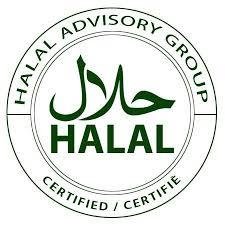Halal certification is a process that ensures food and products meet Islamic dietary laws. The term “halal” means “permissible” in Arabic. Products with Halal Certifications UK follow strict guidelines based on Islamic teachings. This certification is essential for Muslim consumers who want to ensure the products they use comply with their faith.
Why Is Halal Certification Important?
Halal certification is important for several reasons:
- Trust for Consumers: It assures Muslim consumers that products are safe and lawful to use.
- Market Growth: Businesses can reach a growing market of Muslim customers in the UK and globally.
- Transparency: It ensures that ingredients, processes, and facilities meet strict halal standards.
- Religious Observance: It allows Muslims to practice their faith confidently when choosing food or other products.
How Does the Certification Process Work?
The halal certification process involves several steps. These steps ensure that products meet Islamic guidelines:
- Application: Businesses apply to a recognised halal certification body.
- Inspection: Inspectors review ingredients, facilities, and production processes.
- Approval: If the product meets halal standards, the certification is granted.
- Ongoing Audits: Regular checks are conducted to maintain certification.
The certification is typically valid for a set period, after which it must be renewed.
What Products Can Be Halal Certified?
Halal certification applies to a wide range of products, including:
- Food and Beverages: Meat, poultry, snacks, and drinks.
- Cosmetics: Products made without alcohol or non-halal animal ingredients.
- Pharmaceuticals: Medicines free from haram (prohibited) substances.
- Household Goods: Items such as cleaning products.
Certification ensures these products are suitable for Muslim consumers.
Key Requirements for Halal Certification
Products must meet specific criteria to receive halal certification:
- Permissible Ingredients: Only halal ingredients can be used. For example, pork and alcohol are prohibited.
- Ethical Practices: Animals must be treated with care and slaughtered according to Islamic laws.
- No Cross-Contamination: Facilities must prevent contamination with non-halal products.
- Clear Labelling: Certified products must display the halal logo.
Meeting these requirements ensures compliance with Islamic principles.
Halal Certification Bodies in the UK
Several organisations in the UK provide halal certification. These bodies ensure businesses meet halal standards. Some well-known certification bodies include:
- Halal Food Authority (HFA)
- Halal Monitoring Committee (HMC)
- European Halal Development Agency (EHDA)
These organisations perform inspections and audits to ensure compliance.
Benefits of Halal Certification for Businesses
Halal certification offers numerous benefits for businesses:
- Access to a Growing Market: The Muslim population in the UK is expanding, creating a high demand for halal products.
- Increased Trust: Certification builds trust with Muslim consumers.
- Global Opportunities: Halal certification opens doors to international markets, especially in Muslim-majority countries.
- Competitive Advantage: Businesses that offer certified products stand out from competitors.
Investing in halal certification can lead to significant business growth.
Challenges of Halal Certification
While beneficial, halal certification also comes with challenges:
- Cost: The certification process involves fees for inspections and audits.
- Strict Standards: Businesses must ensure full compliance, which may require changes to production processes.
- Ongoing Compliance: Regular audits are necessary to maintain certification.
Despite these challenges, the benefits often outweigh the difficulties.
How to Identify Halal Certified Products
Consumers can easily identify halal certified products by looking for:
- Halal Logo: A recognised logo from a certification body on the packaging.
- Ingredient Labels: Clear and transparent ingredient lists.
- Online Resources: Many halal certification bodies provide lists of certified products and brands on their websites.
These steps help ensure that the products meet halal standards.
The Growing Demand for Halal Products in the UK
The demand for halal products in the UK is steadily increasing. The Muslim population in the country is over 3 million and continues to grow. This demand extends beyond food to cosmetics, pharmaceuticals, and household goods. Businesses that cater to this demand can benefit from significant growth and customer loyalty.
Tips for Businesses Seeking Halal Certification
If you own a business and want to get halal certification, here are some helpful tips:
- Choose the Right Certification Body: Research and select a reputable organisation.
- Understand the Requirements: Learn about the specific standards for your product.
- Train Staff: Ensure employees understand and follow halal guidelines.
- Maintain Documentation: Keep records of ingredients and processes for audits.
- Communicate Clearly: Let your customers know your products are halal certified.
These steps can simplify the certification process and ensure compliance.
For more information visit Website
Final Thoughts
Halal certification in the UK is essential for businesses that want to serve the Muslim market. It provides trust and transparency for consumers while offering growth opportunities for businesses. Whether you are a business owner or a consumer, understanding halal certification helps ensure that products meet the highest standards of quality and faith.



